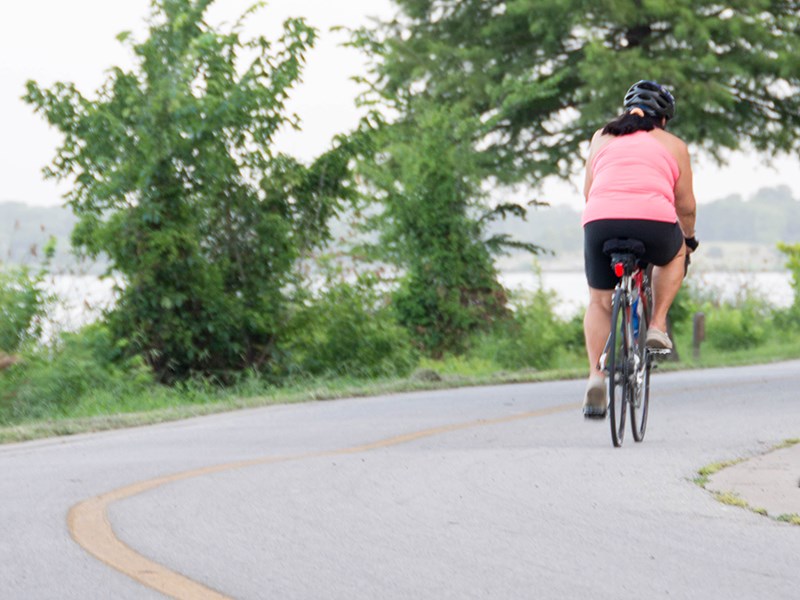Debate over the future of a road-widening project to include bike lanes on Texada Island heated up with the delivery of a petition from a former Powell River Regional District (PRRD) director.
Former PRRD Texada director Dave Murphy made a presentation on the issue to the regional district at its regular meeting Thursday, February 25.
Murphy brought the petition with 165 signatures to the meeting, proof, he said, that Texadans support the ongoing road widening and improvement on Gillies Bay Road.
He told the board that many people on Texada thought the bike lanes were a “slam dunk” and were shocked to discover the project was in jeopardy.
“Usually, it’s the people who are opposed to something that are the ones who voice their opinion the strongest,” stated Murphy to the board. “To tell you the truth, there is such a thing as a silent majority. I have with me today the signatures from that silent majority on Texada.”
He asked for a motion to accept his petition and also have a future one reinstate the $150,000 of federal gas tax earmarked for the current phase of the project. Murphy said he hopes to have the project funding restored before the board passes the regional district’s annual budget in March.
Murphy told the board the petition shows three votes of support to every vote against in the PRRD’s survey.
According to Statistics Canada, in 2011 Texada had a population of approximately 1,000 residents.
In the fall of 2015, PRRD commissioned a questionnaire, printed in the island’s local publication, and asked whether residents supported the continuation of the road-widening project on Gillies Bay Road or preferred to see a bike trail separate from the road constructed between Shelter Point and Gillies Bay. It also asked what other recommendations residents might have for further infrastructure projects on the island.
The project to widen the 3.4-kilometre stretch of Gillies Bay Road from Shelter Point Regional Park to Gillies Bay village, outlined in the Powell River Regional Transportation Plan, carried close to a $1.1- million price tag.
While there was no commitment for fully funding the project, regional district staff in 2014 told the board that the regional district could pay for the project from its approximate $300,000 in annual federal gas-tax funding.
In 2014, just under a kilometre of the road was completed for $150,000. In 2016, Texada was to get another $150,000 to start phase two of the road widening, but in January, Texada director Sandy McCormick announced to the board that due to opposition she could no longer support it, despite being disappointed that it had to be shelved.
“Bike lanes are a good thing. They enhance community health and public safety,” she stated at the recent meeting.
But the petition raised questions for McCormick, who asked how she was supposed to determine what public opinion was if residents were not willing to participate in surveys.
Texada resident Dave Opko said he was surprised to hear the project had been defunded.
“I didn’t know [the survey] was going to be binding,” said Opko. He added that he thought, with the traffic on the road and its scenic location, the project is important to promote local cycling and safety.
Tom Read, a concerned Texada resident, said the project never had much support. In the past three surveys on transportation priorities for the island, he said the issue has consistently ranked near the bottom.
“A lot of other things were ranked higher,” he said, such as, “painting white lines, fixing huge potholes and using a higher quality gravel on the dirt roads.”
Even more in need of funds, said Read, is the island’s drinking water infrastructure. He explained that since Lund Water District received $125,000 to upgrade its system from gas-tax money, now “every other water system is coming with their hand out.”
“We have two villages with water systems that desperately need improvement and upgrades,” said Read. “I don’t think anybody thinks a bike path is a bad idea, but the circumstances that this is happening now is really unfortunate because they were denying funding to projects that might have a higher priority. Is road-widening going to trump all the water systems in the region? I doubt it.”



